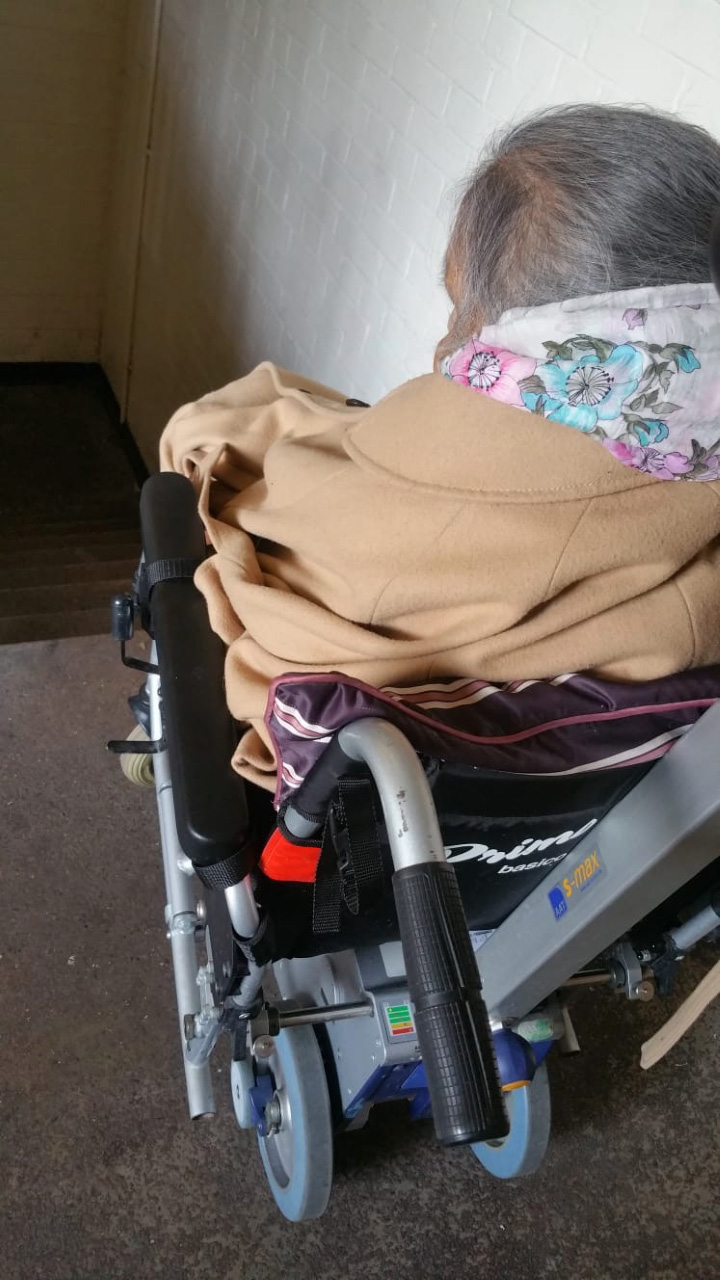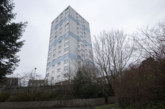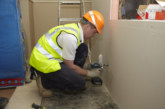
Social housing landlords face a growing problem, according to research, the majority of tenants with a long-term impairment do not have the adaptations they need (1), yet the housing stock is increasingly (35% plus and growing [2]) flats. Among the biggest problems are “common parts”— particularly stairways, and who is responsible for funding alterations — without it adversely impacting other tenants in the building.
AAT GB believes it offers an ideal solution: where appropriate, provision of a stairclimber enables people with impairments to get out of their home, up and down stairs safely, with dignity, without any permanent fixture that obstructs the stairway for other users.
In essence, a portable kinematic, battery-powered device that ascends or descends steps, at a rate set and controlled by the operator, AAT’s stairclimber will execute 300 steps from one charge. Versions include integral seats, clip-to-wheelchair, and tracked. It can be accessorised to provide safeguarded, personalised correct postural support. When not in use, it folds compactly away.
A stairclimber delivers compliance with the Equality Act Section 36. It can also eliminate the need for DFG funding. It can enable the housing association to safeguard and mobilise tenants within a matter of days, whether for the short- or long-term, and manage the risk of their accessing all areas of their home and the community. Use of the equipment means the tenant is no longer trapped in their flat, or on one level of their house. It also means no other residents are restricted in their use of the stairs.
It also addresses efficient evacuation with changes to the Building Safety Act coming into force in 2023.
As an added benefit, when the original tenant no longer needs it, the stairclimber can be allocated to another tenant anywhere else within the housing association’s stock, without any need for structural modifications or making good.
Further, as part of the offering, AAT can train a nominated person within the housing association to undertake the stairclimber issue process or manage it on the association’s behalf. It will service the equipment in line with LOLER requirements.
“Stairs are one of the most common areas that require adaptation,” explains Peter Wingrave AAT Director. “But 35% plus of social rented households are flats, with all the issues of enabling ALL tenants to safely get in and out of their homes — and the building. Our stairclimbers are proven in 90% plus of cases in which we are involved to be the answer to overcoming the barrier of stairs, managing risk, improving safety, and enhancing dignity and independence.
“They are proven to have an impeccable safety record, and, with thousands of units already in use by local authorities across the country, a trusted, safe, unintrusive option.”
For a demonstration of the equipment, or free, no obligation review of a tenant’s suitability by one of AAT’s assessment managers, click here.








